From Monthly Film Bulletin, January 1975 (Vol. 42, No. 492). -– J.R.
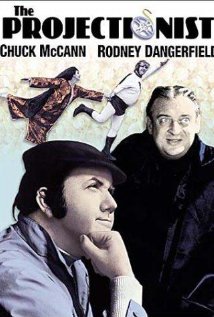
The Projectionist
U.S.A., 1970
Director: Harry Hurwitz
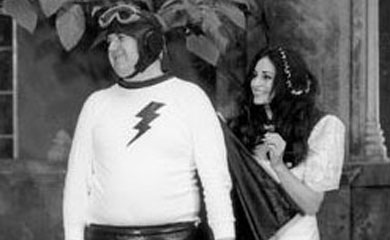
Chuck, a stocky film projectionist who works in midtown Manhattan, hears on a radio about an old man mugged on the Lower East Side, and imagines himself coming to the rescue as Captain Flash. The reverie is broken off by the arrival of his friend Harry, an usher, who hears him describe meeting a pretty girl on the way to work (provoking a romantic-movie pastiche); this is interrupted in turn by Renaldi, the tyrannical theatre manager, who orders Harry out of the booth. Chuck next fantasizes a preview,’The Terrible World of Tomorrow”, before getting off work. As Captain Flash, he loses a fight with the thugs, and the old man informs him that The Bat is after his death ray; they proceed to The Bat’s hideout, where Flash sees the same pretty girl he had described to Harry. In the cinema lobby, Chuck chats with the Czech candy man, who is eventually reprimanded by Renaldi for giving Chuck free lemon drops from the counter. Chuck imagines another preview (“The Wonderful World of Tomorrow”) and a Flash episode in which he visits ‘Rick’s Bar’ in Casablanca and tangles with a prehistoric beast in The Bat’s cave. Passing a movie premiere, he imagines arriving there as a celebrity. Read more
From the Chicago Reader (November 13, 1998). It seems like there are some cinephiles around who still regard Dogme 95 as an honest-to-Pete aesthetic position and not as a lucrative business, ignoring that as far back as 2000, official Dogme Certificates were being sold in Denmark for roughly $1,000 apiece — apparently as a adjunct to von Trier’s main form of income, his ongoing porn-film business (which has also been widely ignored). — J.R.
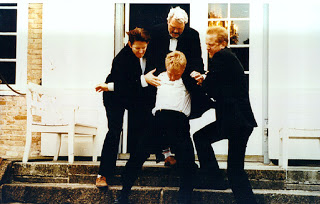
The Celebration
Rating *** A must see
Directed by Thomas Vinterberg
Written by Vinterberg and Mogens Rukov
With Ulrich Thomsen, Henning Moritzen, Thomas Bo Larsen, Paprika Steen, Birthe Neuman, Trine Dyrholm, and Helle Dolleris.
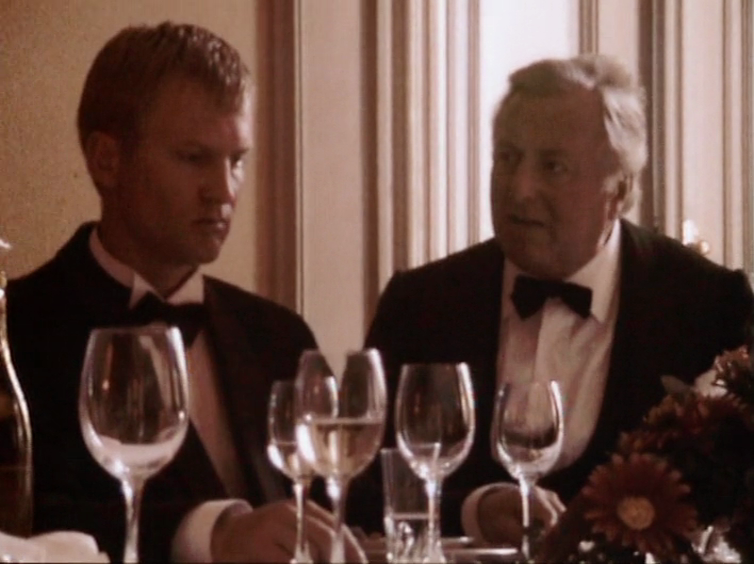
In 1961 we wrote this manifesto of the New American Cinema. Eugene Archer was working for the New York Times then, and I showed it to him and asked him if they could print it. He said, ‘No, we couldn’t — maybe the Village Voice could run it.’ Then I understood, of course, that the only kind of manifesto that the New York Times would print would be a press release, not a manifesto at all. In the same way, for an idea to get into the Village Voice today, it has to become not an idea but something else. Read more
From Oui (August 1974). — J.R.
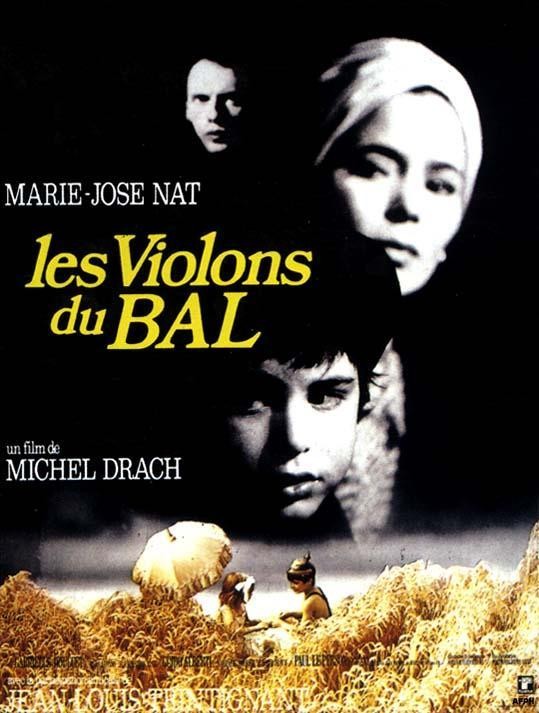
Violins at the Ball. It appears that the two obsessive themes of French cinema right now are movies about movies and movies about the German Occupation. Michel Drach’s Violins at the Ball combines both of these, but on a very personal level, for the story he has to tell is Drach’s own. It is told in two tenses: a present in black and white showing Drach as he tries to interest a producer in his film and he travels around Paris and Oise with his cameraman; a past in color that he is filming, which describes his adventures as a Jewish child during the Occupation.Drach’s wife, actress Marie-José Nat, plays herself in the present and his mother in the past, while their son David portrays Michel at the age of eight. To complicate matters further, the producer declares that the film can’t be made without a star, and Drach immediately replaces himself with Jean-Louis Tringtignant – who also happens to be his best friend. Drach has wanted to make this film for 15 years, and it shows in the careful attention given to various details, the subtle transactions between memory and invention, fear and comfort, yesterday and today. Read more
Curiously, the Chicago Reader’s web site dates this capsule review in October 1985, two years before the film was made. I first saw it at the Toronto Film Festival in September 1987, and believe I reviewed it not too long afterwards. — J.R.
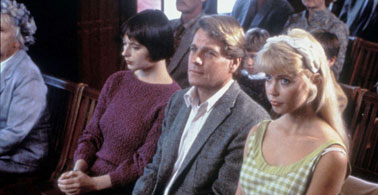
Norman Mailer’s best film, adapted from his worst novel, shows a surprising amount of cinematic savvy and style from a writer whose previous film efforts (Wild 90, Beyond the Law, Maidstone) were mainly unvarnished recordings of his own improvised performances. Working for the first time with a mainstream crew and budget and without himself as an actor, he translates his high rhetoric and macho preoccupations (existential tests of bravado, good orgasms, murderous women, metaphysical cops) into an odd, campy, raunchy comedy thriller that remains consistently watchable and unpredictable — as goofy in a way as Beyond the Valley of the Dolls. Where Russ Meyer featured women with oversize breasts, Mailer features male characters with oversize egos (although the women here also do pretty well in that department), and thanks to the juicy writing, hallucinatory lines such as “Your knife is in my dog” and “I just deep-sixed two heads” bounce off his cartoonish actors like comic-strip bubbles; even his sexism is somewhat objectified in the process. Read more






